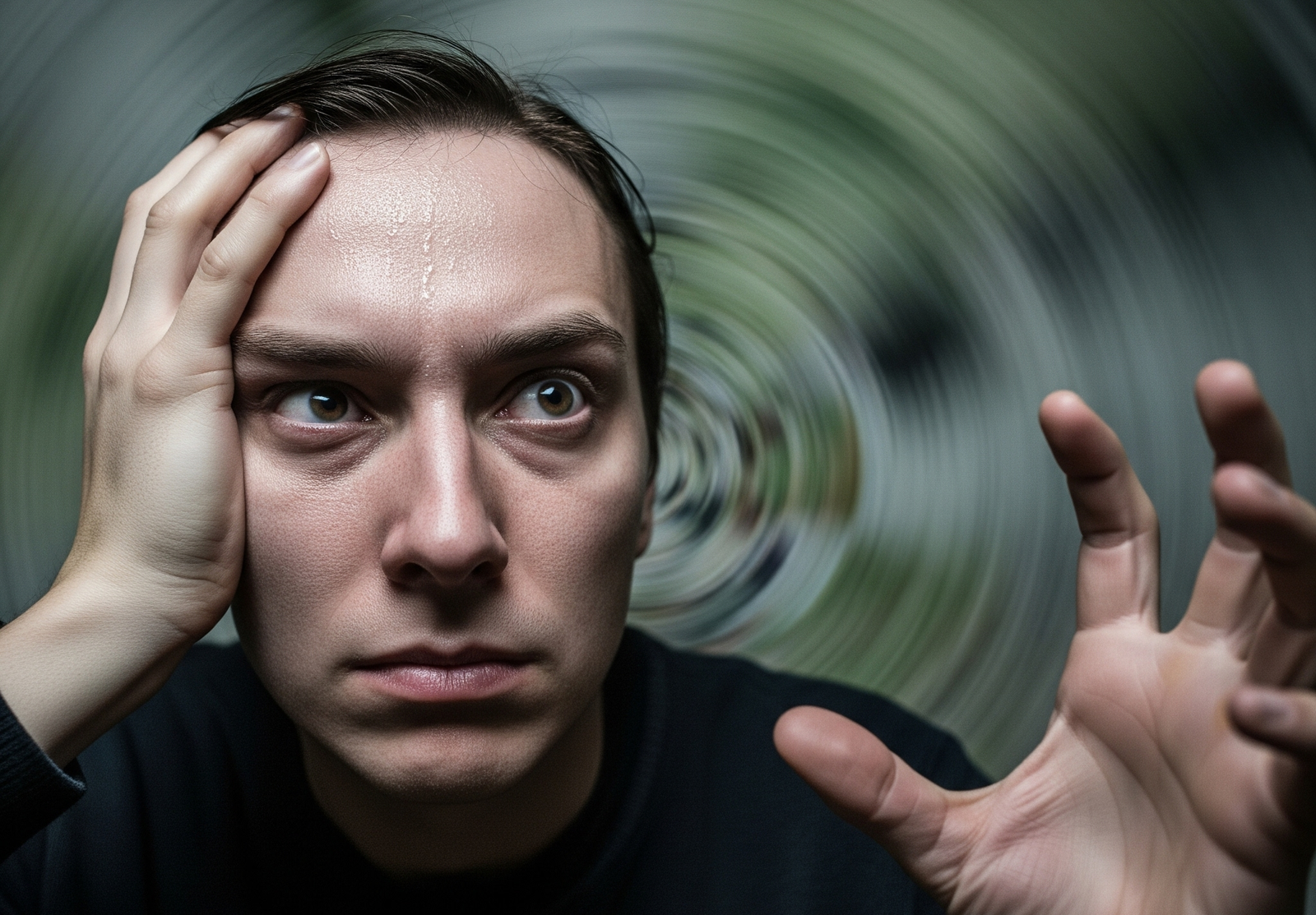Vertigo is not just “feeling lightheaded.” Instead, it creates the false sensation that you or your surroundings are spinning. It can last for a few seconds or continue for hours, depending on the cause. Contrast with a headache, which is a feeling of pain or pressure in the head.
Common Causes of Vertigo and Dizziness
1.Inner Ear Problems
- Benign Paroxysmal Positional Vertigo (BPPV): Caused by tiny crystals moving inside the inner ear.
- Labyrinthitis or Vestibular Neuritis: Inflammation due to infection.
- Meniere’s Disease: Inner ear disorder linked to fluid buildup and hearing loss.
2. Circulatory Issues
- Low blood pressure or sudden drops in blood pressure.
- Poor blood flow to the brain.
3. Neurological Causes
- Migraines (vestibular migraines can trigger vertigo).
- Rarely, multiple sclerosis or stroke.
4. Other Triggers
- Dehydration.
- Side effects of medications.
- Anxiety or panic attacks.

Symptoms of Vertigo
- Spinning sensation (you or the room feels like it’s moving).
- Loss of balance or unsteadiness.
- Nausea or vomiting.
- Headache.
- Ringing in the ears (tinnitus).
- Sensitivity to motion.
How to Relieve Vertigo Quickly
- Sit or lie down immediately to prevent falls.
- Focus on a fixed point to reduce the spinning sensation.
- Hydrate well — dehydration can make dizziness worse.
- Try the Epley maneuver (for BPPV, guided by a doctor or physiotherapist).
- Avoid sudden head movements until symptoms improve.
- Natural Remedies include reducing salt intake, limiting alcohol and caffeine, and getting enough sleep and rest.
When to See a Doctor
- Vertigo lasting more than a few days.
- Severe headaches or vision problems.
- Hearing loss or ringing in the ears.
- Numbness, difficulty speaking, or weakness (possible stroke — seek emergency care).
Occasional dizziness is usually harmless; persistent or severe vertigo needs medical evaluation.
Disclaimer: This article is for educational purposes only and should not replace professional medical advice. If you have ongoing dizziness, consult a healthcare provider.
Source:
You may also be interested on Migraine


[…] You may also interested to know on Vertigo(dizziness) […]